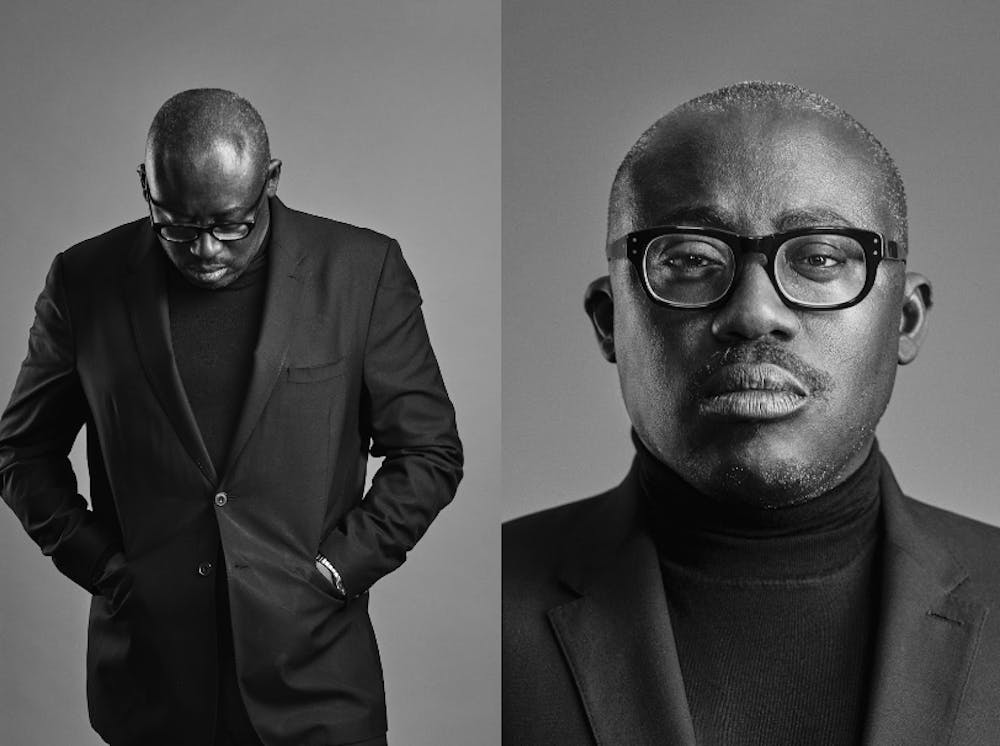In the past, diversity in the fashion industry was essentially non-existent; from models on the runway to the masterminds behind the development of fashion magazine issues, fashion typically did not make space for Black, Indigenous, and other people of color.
British Vogue, a fashion magazine based in London, England, has been notorious for lacking representation across its editorial staff. When Alexandra Shulman published her final issue as editor-in-chief of the magazine in 2017, English model Naomi Campell took to Instagram to criticize the magazine’s majority-white editorial team (Petter, 2017). She also used the opportunity to express her excitement for British Vogue’s new and current editor-in-chief, British-Ghanaian Edward Enninful. In light of Enniful’s new memoir, A Visible Man, it is essential to look at his impact and the diversity has brought to British Vogue.
Enninful, who has made history as British Vogue’s first black editor-in-chief, has made it his mission to bring diverse voices and stories to British Vogue, as it would reflect the world and the environment in which he grew up. To grasp Enninful’s mission and direction for British Vogue, it’s important to understand how his cultural background and experiences influenced him to become the iconic fashion trailblazer he is today.
Edward Enninful was born in Ghana in February of 1972 and immigrated to Ladbroke Grove, London along with his parents and 5 siblings. His mother worked as a seamstress who created clothes for her British-Ghanaian friends. The colorful fabrics and patterns Enninful was exposed to whilst he assisted his mother in her seamstress duties inspired him to enter the fashion realm. At the age of 16, Enninful was discovered by modeling agent Simon Foxton on a train, but when he attended modeling casting calls, he was often dismissed, being told that his “lips were too big” or “his nose was too wide” (Mosley, 2022). He experienced first-hand what it was like to navigate society as a dark-skinned Black model.
When he was 18, Enninful began to work as a fashion director for i-D, a magazine dedicated to displaying the street style of London youth. He worked on styling the magazine covers as well as the features within the magazines, and advocated for more Black models to grace the cover of this magazine company. In his words, “Even when people would say to me, ‘Oh, another Black model on the cover,’ I used to say, ‘Yes, and here’s another one!’... And I was never really scared because I knew that the world that I saw had to be reflected” (Mosley, 2022).
Throughout his experience working as an editor for Italian Vogue to becoming a fashion and style director for W magazine, Enninful eventually climbed his way up to being appointed as the editor-in-chief of British Vogue on April 10th, 2017. Throughout his career in the fashion world, Enninful has heard multiple outlandish statements about diversity in fashion magazines, including “Black women on covers don’t sell magazines” (Eldor, 2022). Since Enninful took over, his commitment to giving Black women a seat at the table has contributed to a 51% digital traffic increase for British Vogue, proving that racist messages claiming that Black women do not possess the beauty to drive up magazine revenue are false and inaccurate. During Shulman’s 25-year run as editor-chief of British Vogue, only 12 of the 306 covers were of Black women, with the workforce behind these issues being predominantly white. Enninful’s dedication to diversity and inclusion in the fashion industry has resulted in more than half of the British Vogue covers during his reign featuring women of color, with 25% of the editorial team being people of color (Evans, 2020). Enninful’s impact on British Vogue is quite significant when looking at America’s Vogue magazine in particular, where only 24 of the 96 covers released since 2012 have featured a Black model on the front cover of the magazine (Hewitson, 2020).
Some examples of Enninful’s revolutionary work are his debut December 2017 British Vogue issue, in which he got British-Ghanaian model Adwoa Aboah to grace the cover. In the May 2018 issue, nine different models appeared on the cover ranging from women of color to plus-size and even hijabi women, which received overwhelmingly positive feedback.
Furthermore, the recent February 2022 British Vogue issue showcased nine dark-skinned African models with ethnicities ranging from Senegal to Ethiopia to Sudan, Nigeria and Rwanda. This particular issue was transformative, as it brought recognition to the new generation of African models that broke boundaries that were thought never to be broken.
“Disruption is important because that’s the only way the world can move forward. To the younger generation, I want to say be as fearless as you can and disrupt in your own way,” says Enninful (Eldor, 2022). Time and time again, Enninful has shown the positive effects of going against the grain through his significant accomplishments working as Editor-in-Chief of British Vogue. Diversity and inclusion, a fundamental principle in Enninful's work for British Vogue, is something from which other major fashion magazine companies can draw inspiration. Enninful’s efforts will allow us to live in a world where diversity and inclusion in the fashion industry are no longer an afterthought, and the stories and daily experiences of BlPOC are finally (and accurately) being reflected in fashion magazines.



